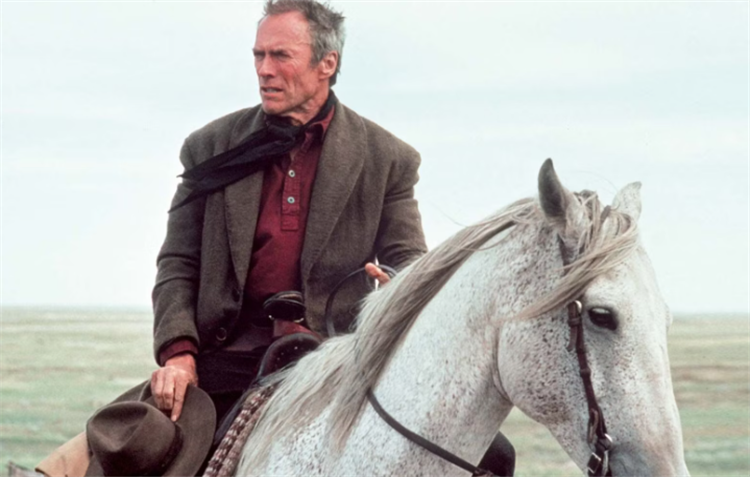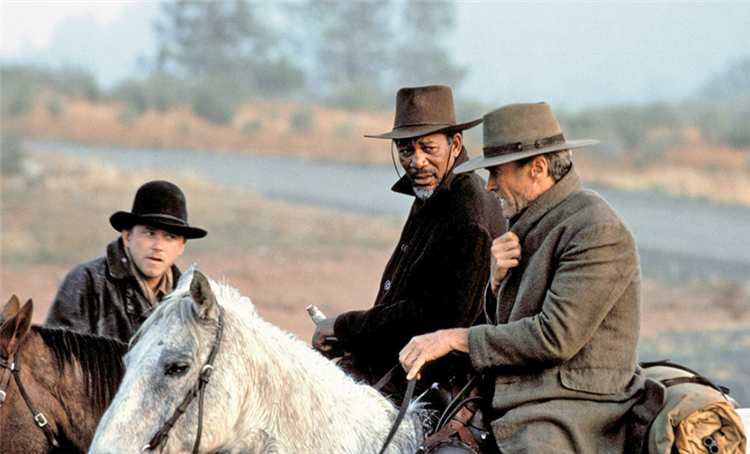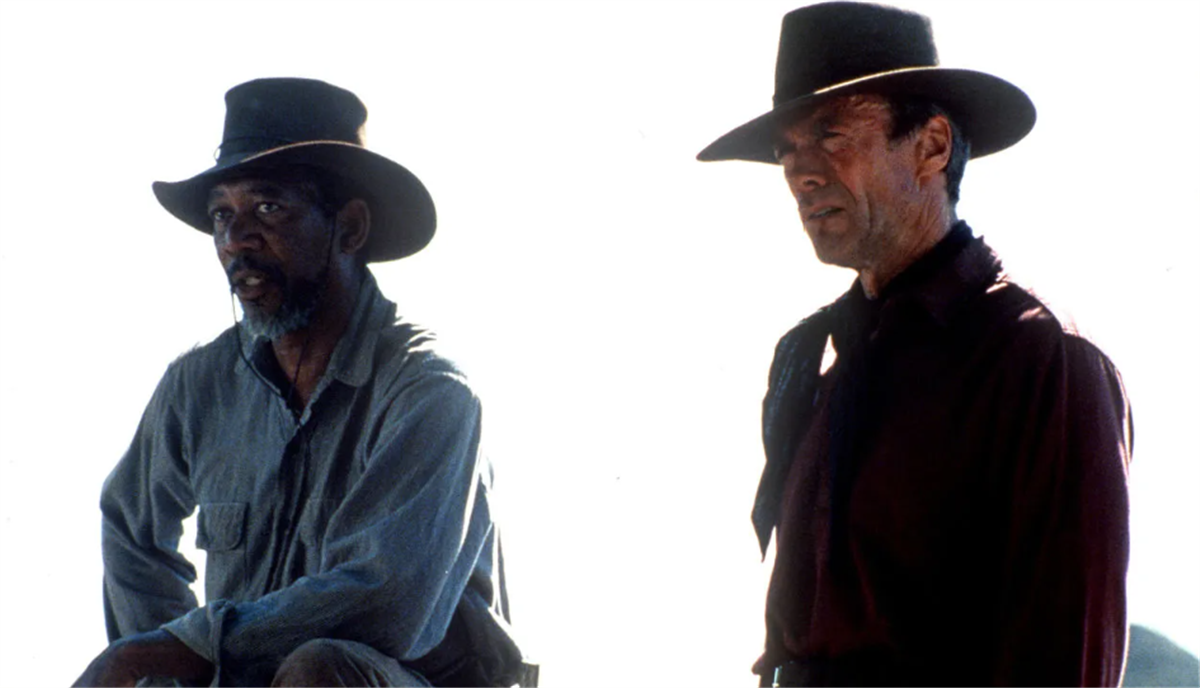“It’s a hell of a thing, killing a man.”
Western films are among the most critical genres in cinematic history, and have been popular since the silent era of filmmaking. While science fiction and fantasy films offer escapist fantasies that are drawn from fictional settings, Westerns are able to create propulsive entertainment out of a real chapter of American history. The genre succeeded in its early years thanks to classic movie stars like John Wayne and Gary Cooper, but Clint Eastwood came to redefine the Western genre with his gritty approach.
While Westerns from the “Golden Age of Hollywood” offered a highly sensationalized depiction of life on America’s frontiers, the films that Eastwood appeared in offered a more realistic interpretation of history. In reality, the line between heroes and villains was often blurred, and Eastwood showed that there was greater moral ambiguity to the genre’s archetypes. In addition to starring in many great Westerns, Eastwood launched a directing career that left the genre with many new classics. While his contributions to the genre cannot be overstated, Eastwood played his only true Western villain in his 1992 masterpiece Unforgiven.
Clint Eastwood Launched the Modern Western Anti-Hero

Eastwood’s ascension within the film industry was not an easy one, as he was initially fired by Universal Studios for not fitting the studio’s perception of what a typical “movie star” would look like. While Universal may have considered Eastwood to be too rough around the edges to be a mainstream leading man, this was ironically the quality that made him perfect to kickstart a new generation of Westerns. Eastwood earned his breakout role in Sergio Leone’s Spaghetti Western A Fistful of Dollars, in which he portrayed the ambiguous “Man With No Name.” Seen as a breakthrough film for its radical approach to violence and intrigue, A Fistful of Dollars inspired the sequels For a Few Dollars More and The Good, The Bad, and The Ugly.
The trio of films is often cited among the greatest Western films ever made due to Leone’s careful construction of action sequences and the iconic score by Ennio Morricone. However, Eastwood succeeded in playing a very different type of hero in “The Man With No Name” trilogy. Unlike the heroic sheriffs and gunslingers in classic Westerns, Eastwood’s character was a bounty hunter who was willing to profit from the application of his lethal skills. Little details are ever given about his background, as the audience doesn’t even know his name; in The Good, The Bad, and The Ugly, he is only given the nickname “Blondie.” Despite claiming to be only interested in the financial rewards, “The Man With No Name” ultimately chooses a side of heroism; his morality may be ambiguous, but he still lives by a code of ethics.
Eastwood continued to play antiheroes in the Western films he directed. The first Western he directed, High Plains Drifter, featured him in the role of a mysterious drifter known only as “The Stranger,” who is hired to protect a small town of innocent civilians from the threat of a vicious gang of outlaws. Although he succeeds in protecting the community, “The Stranger” often utilizes brutal methods to dispatch his enemies. Eastwood has a unique ability to play morally ambiguous antiheroes, which continued with subsequent Westerns like Pale Rider and The Outlaw Josey Wales. Although he was often scary and intense, Eastwood never crossed the line and truly abandoned his characters’ humanity.
‘Unforgiven’ Challenged Perceptions of Clint Eastwood

Unforgiven took Eastwood over two decades to make, but ultimately, the delays only made the film more authentic, as Eastwood wanted to look older to more accurately portray his grizzled protagonist. Unforgiven is a revisionist Western that explores the life of a ruthless Western outlaw. Eastwood stars as the former outlaw Will Munny, who has refrained from a life of violence in order to raise two children on a farm away from society. While he had sworn to never return to the volatile ways of his youth, Munny is recruited by a young bounty hunter who calls himself the “Schofield Kid” (Jaimz Woolvett) to find and kill two cowboys responsible for cutting up a sex worker’s face while at a brothel. Munny recruits his old friend Ned Logan (Morgan Freeman) to join them, agreeing to split the bounty reward money three ways.
Unforgiven brilliantly inverts the Western genre because it’s not immediately clear that Munny is a villain. While Munny has a fearsome reputation, known for slaughtering “just about everything that walks or crawled at one time or another” — women and children included — this isn’t the Munny that audiences know. Initially, Munny seems like a caring widower and father, haunted by his cruel past and with no wish to return to his “old ways.” The only reason he takes the job is to provide money for his children. If anything, it’s difficult to believe that the lonesome, regretful protagonist is the same man with such a ruthless reputation. However, the film’s climactic ending shows just how depraved the character really is and suggests that perhaps Munny’s “old ways” are not buried so deeply after all. After cornering the film’s antagonist Little Bill (Gene Hackman) and his forces after they brutally kill Ned, Munny guns down a bar full of henchmen. It’s more than just an act of vengeance; Munny seems to enjoy taking part in the violence, and goes out of his way to torture each of the men who challenge him. For a brief, brutal moment, Eastwood steps into the role of a black-hat Western villain.
‘Unforgiven’ Closed a Chapter of Clint Eastwood’s Career
Although it already had one of the darkest endings in film history, Unforgiven was particularly shocking because it was unlike anything Eastwood had done before. Viewers were used to seeing him in intense situations that reflected a certain level of moral ambiguity — the Man With No Name included — but they weren’t adjusted to seeing him reach such sadistic levels of cruelty. It helped Unforgiven reflect upon the totality of the Western genre and analyze the cyclical violence within America’s past. While the crimes committed by men like Munny may be forgotten, they will never be entirely “forgiven.”
Although he directed many great films in the aftermath, Unforgiven served as the last traditional Western of Eastwood’s career. It was met with serious acclaim, earning Eastwood the Academy Awards for Best Picture and Best Director that he had long since deserved. Ironically, one of the most singular screen heroes of all-time was finally met with the accolades of his peers by showing his dark side.
Unforgiven is available to rent on Prime Video in the U.S.
